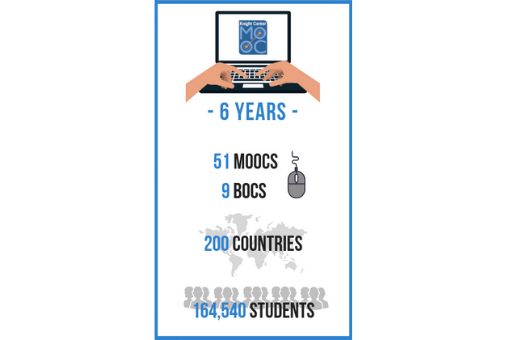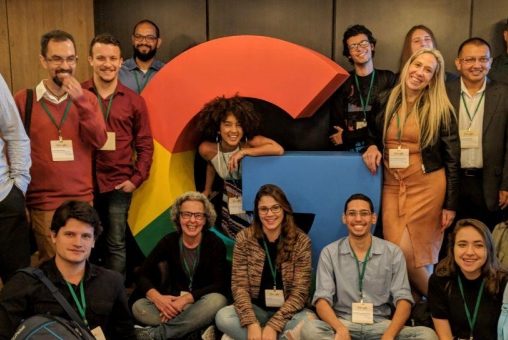When Yusuf Omar spoke to a crowd of media executives, academics and journalists last April in Austin, he told them “Our future is in our ability to curate and aggregate and listen to the voices of mobile storytellers around the world.”
Newsrooms around the world are using automation to produce earnings reports, identify fact-checkable statements, and provide updates on court cases, among other functions. It’s now imperative that journalists understand the power and pitfalls of these technologies.

The Knight Center for Journalism in the Americas is celebrating the 6th anniversary of its program of massive online courses in journalism that has an unparalleled reach around the world.

For Teri Finneman, the Knight Center’s latest free online course on podcasting came at just the right time.

Artificial intelligence, machine learning, deep learning. These are some terms that are in high demand in many professional fields, but which are not yet familiar to many in news media.

Eighteen journalists who completed massive online Portuguese courses with the Knight Center for Journalism in the Americas were at Google São Paulo on Oct. 1 to attend exclusive workshops on electoral coverage and fact-checking.
Just after the controversial May 20 presidential elections, a regulatory agency for the government of Venezuela is using a controversial new communications law against the website of one of the country’s most widely circulated newspapers.
The International Center for Journalists (ICFJ) recently published a contemporary guide on the ethical principles that should govern today's journalism given the context of the digital media era.
When I founded Nómada, the media outlet of which I am the director and main shareholder, I hardly imagined just how difficult it could be to finance quality journalism. Four years later, in the business and financial field, we are beginning to see the light at the end of the tunnel thanks to our business model.
The goal with this article is to explain how can Design Thinking can help you become a better digital journalist, with a business mindset and collaborative skills. This has helped me a lot, and I hope it helps you, too.
Cuban online magazine El Estornudo said the Cuban government has blocked access to the site, one of the main digital media outlets of an emerging independent journalism scene on the island.
In a move contrary to global trends in journalism, the traditional newspaper Jornal do Brasil (JB) returned to the newsstands on Feb. 25 after eight years after it closed its print edition and became a purely digital media outlet.